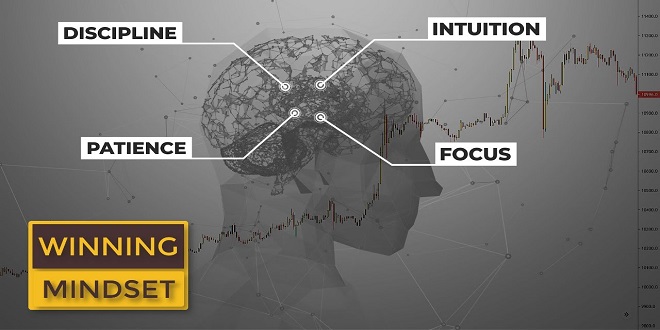
Now that we have examined some of the enemies of the trader, let us look at some of the positive behaviors you can develop.
Get Organized
The organization is vital to the success of any venture. It is important to know where you are headed when you expect to get there, and which vehicles you will use to reach your destination. Without organization, these tools can often be misplaced. Your charts, books, formulae, trading rules and telephone numbers, and the like must be readily available.
Develop Discipline
This is, of course, easier said than done. There are many ways in which it can be achieved. One of them is to take a course on self-improvement, such as those offered by the Dale Carnegie Institute. You will learn that success requires discipline and that discipline can be learned. Discipline can often be improved through the simple application of behavioral learning techniques. The Investors Quotient gives specific suggestions and techniques designed to help you improve your discipline. In addition, there are many simple exercises that you can use.
Remember that discipline from one area of your life tends to be reflected in all others. Therefore, if you lack self-discipline when it comes to changing such negative habits as overdrinking, overweight, overeating, and smoking, then you will probably lack the discipline required for successful trading. You may need to overcome these habits first, or you may need to conquer all lack of discipline at once.
Develop a Simple and Effective Trading Approach
One of the greatest limitations on success in trading is that systems become too complicated, too burdensome, or too time-consuming to use. If you build a boat, make certain you can get your boat into the water. Once in the water, make certain you can move. Too many traders spend too much time developing complicated, sophisticated “trading systems” that are too difficult to implement.
My knowledge of top-ranking, successful futures traders shows that most of them use simple methods. You will hear “keep it simple” repeated again and again. “Keep it simple” is one of the foremost rules. If you keep it simple you are less consumed with details, less troubled with self-discipline, and you shorten your market response time.
Keep Impulsive Trading to a Minimum—Stay Relatively Isolated
There is a great deal to be said for isolationism in trading. In order to keep free of impulse, it is often best to not know the news. Then you can (as the saying goes) keep your head while all those around you are losing theirs. You will, in so doing, avoid the costly errors that are so often the result of impulsive behavior rather than following your system. I favor isolation.
I prefer not to listen to the radio or television news, not to read the newspapers, not to discuss the markets, not to listen to the opinions of others, and not to discuss the markets, even with other professionals. I do this because I know that I may have weaknesses. In order to be strong and avoid impulsive actions motivated by the emotions of fear and/or greed, I must limit my exposure to extraneous information.
Last word
You must always keep your goals in mind. If you are a short-term trader, then you must think and act like one. However, if you are a long-term trader, then your perception of the markets and your corresponding actions must be consistent with these objectives. I have found it best to have a list of objectives and goals handy for quick reference during in times of need.





